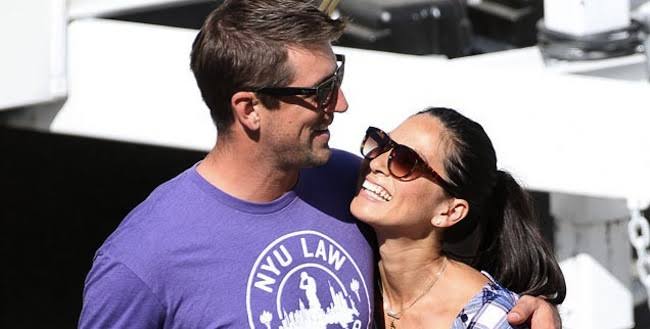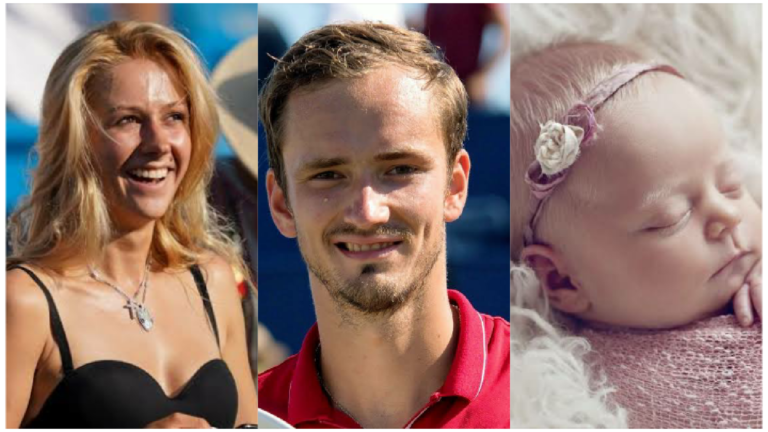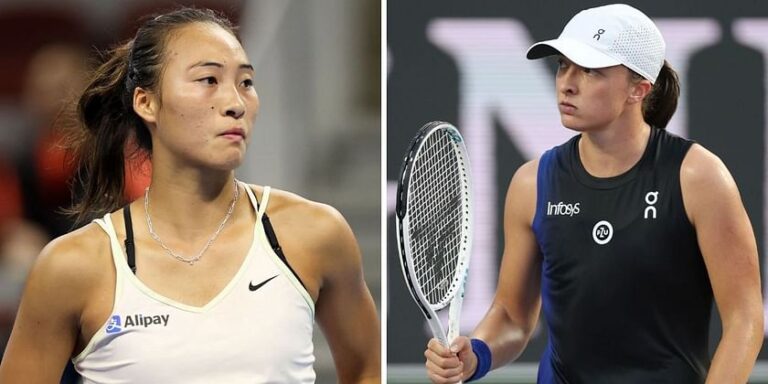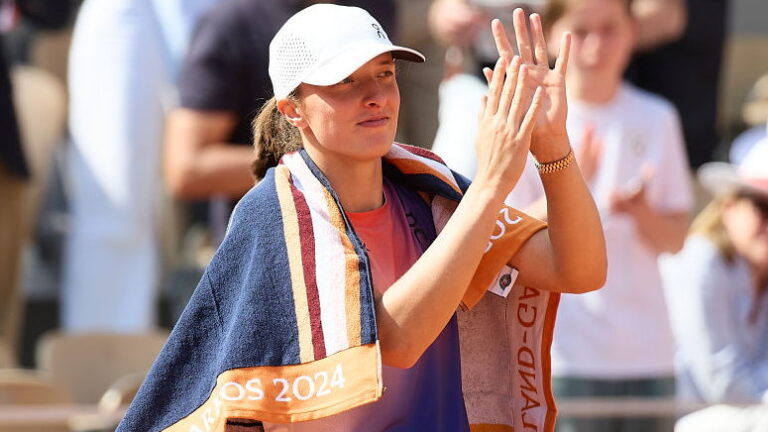“Controversial Backlash: Fans Criticize Elena Rybakina’s Same-Sex Marriage, Labeling it Absurd, Illegitimate, and Questioning the Absence of Offspring”
In the aftermath of Elena Rybakina’s revelation about her same-sex marriage, a wave of controversial backlash has emerged, with some fans openly criticizing the union. The sentiments expressed by these critics have centered around notions of the relationship being deemed absurd, illegitimate, and raising questions about the absence of offspring.

The world of professional tennis, like many sports, has historically grappled with issues of diversity and inclusivity. While several athletes have embraced their personal lives with openness and acceptance, Rybakina’s decision to share her same-sex marriage has ignited a polarizing debate among fans.
Critics of Rybakina’s same-sex marriage have labeled it as absurd, challenging the traditional norms and values often associated with professional athletes. The conservative nature of some sports communities can make it challenging for individuals to break away from established expectations, and Rybakina’s case is no exception.
The use of the term “illegitimate” by some fans underscores a deep-seated bias against same-sex marriages, suggesting that these unions are somehow lesser or unacceptable. This perspective reveals an ongoing struggle within certain segments of society to fully embrace and acknowledge diverse forms of relationships, irrespective of gender.
One particularly contentious point raised by critics is the question of offspring. Some fans argue that same-sex marriages inherently lack the potential for biological children and, therefore, question the validity or completeness of such unions. This viewpoint reflects a broader societal challenge in recognizing and celebrating alternative family structures beyond the traditional nuclear model.


However, it is crucial to note that such criticisms often stem from deeply ingrained cultural and societal beliefs that may not align with evolving perspectives on relationships and family. Same-sex marriages are legally recognized and celebrated in many parts of the world, and the focus on the absence of offspring overlooks the numerous ways couples, regardless of gender, can build families through various means, including adoption and surrogacy.

Elena Rybakina’s decision to share her personal life challenges the status quo within the tennis community, inviting necessary conversations about inclusivity and acceptance. While critics may express disapproval, it is essential to recognize that embracing diversity strengthens the fabric of any community, including the world of professional sports.
As the tennis world grapples with these contrasting opinions, Rybakina’s same-sex marriage serves as a catalyst for broader discussions about the role of LGBTQ+ representation in sports and the ongoing journey towards greater acceptance. Time will tell whether this controversy sparks positive change and encourages a more inclusive environment within the tennis community and beyond.Despite the criticisms surrounding Elena Rybakina’s same-sex marriage, it is crucial to highlight the overwhelming support she has received from fans, fellow athletes, and advocates for LGBTQ+ rights. Many have applauded Rybakina for her courage in sharing her personal life, emphasizing the importance of visibility and representation within the sports world.
The controversy surrounding the term “absurd” brings attention to the broader issue of challenging stereotypes and societal expectations. Rybakina’s decision to embrace her same-sex marriage challenges the notion that there is a conventional or prescribed way for athletes to navigate their personal lives. The evolving landscape of sports demands a more inclusive and accepting attitude towards diverse relationships.
The use of the term “illegitimate” also underscores the need for ongoing education and awareness surrounding LGBTQ+ issues. Same-sex marriages are legally recognized in numerous countries, and labeling them as illegitimate reflects a misunderstanding of the legal and social progress made in recognizing equal rights for all individuals, regardless of their sexual orientation.
Addressing concerns about the absence of offspring in same-sex marriages requires dismantling outdated assumptions about family structures. Families come in various forms, and the emphasis should shift from a narrow perspective on biological connections to acknowledging the multitude of ways individuals can create loving and supportive families.
Elena Rybakina’s experience highlights the ongoing struggle for acceptance and understanding within the sports community. While some fans may resist change, the broader narrative suggests a growing recognition of the importance of diversity and inclusion in professional sports. Athletes like Rybakina, who choose to live authentically, contribute to breaking down barriers and fostering a more inclusive environment for future generations of athletes.
As the tennis world navigates this controversy, it is essential to recognize that societal attitudes are evolving, and discussions around LGBTQ+ representation are becoming more prevalent. The hope is that moments like these will lead to increased awareness, empathy, and acceptance within sports and society as a whole. Elena Rybakina’s journey serves as a testament to the ongoing progress towards a more inclusive and understanding world for athletes of all backgrounds and orientations.






